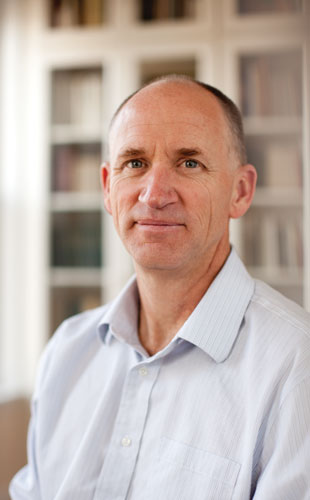 BRANDON S. GAUT
BRANDON S. GAUT
Professor, Ecology & Evolutionary Biology
School of Biological Sciences
University of California, Irvine© MATT KALINOWSKIBrandon Gaut loved genetics, but he did not like experimenting with mice. An undergraduate at the University of California, Berkeley, in the early 1980s, Gaut worked in a molecular immunology lab studying mouse histocompatibility complexes, which required sacrificing and grinding up his subjects to isolate their DNA. “I just wasn’t into that,” says Gaut. “So I thought, ‘What can I study where I don’t have to feel bad?’ And I decided I wouldn’t feel bad if I cut up a plant.”
That decision catapulted Gaut into the vegetable kingdom and onto his ultimate career path. In 1988, he joined the lab of plant geneticist Michael Clegg at the University of California, Riverside, just as the DNA-amplifying technology of PCR was opening up the field of genetics to large, systematic studies. “It was an exciting time to be in the lab, because we were sequencing genes from all kinds of different plant species,” says Gaut. As a graduate student with Clegg, Gaut compiled DNA sequence data from plant chloroplasts to test an evolutionary hypothesis: the possibility that mutations occur in a species’ genome at a regular pace through time. Gaut showed that there is indeed a molecular clock in plants, and its pace is linked to their ...













